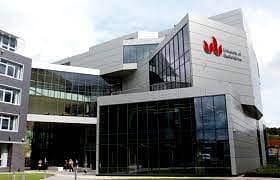Through study of environmental sustainability and management, as well as global environmental change, you develop a comprehensive understanding of what is happening in the environment at a range of scales. You then go on to examine how the integration of environmental science, biotechnology and management methods can help environmental, biodiversity and ecosystem services.
The course has a focus on how biotechnology can provide practical solutions to environmental problems, and your studies support you to develop valuable practical skills in identifying and evaluating useful technologies.
Why choose this course?
- Access the latest scientific thinking and teaching from a leading, research-active academic team with expertise in ecology, biotechnology, management and environmental microbiology
- Gain the knowledge and skills to move into a career in the environmental sector or – if you are a more experienced professional - develop your range of competencies and widen your opportunities in the field
- Develop a systematic understanding and critical awareness of the biological, ecological and socio-economic drivers of global environmental change
- Be able to evaluate methods of managing environmental change at local and global levels, including legislative, voluntary and economic management
- Hone your practical skills in our modern, well-equipped laboratories
- There is the option of a part-time pathway to better fit study around your work and family commitments
- Choose from a wide range of career paths including environmental consultancies; biotechnological research organisations; national and international government agencies and non-governmental bodies; and related business and industry. You also have the option of further study leading to PhD
Unit Information - What will I learn?
Units
- Environmental Biotechnology (BHS018-6) Compulsory
- Environmental Management And Sustainability (BHS016-6) Compulsory
- Environmental Project Management (BHS015-6) Compulsory
- Environmental Research Project (BHS020-6) Compulsory
- Global Environmental Change (BHS017-6) Compulsory
How will I be assessed?
The assessment philosophy of MSc Environmental Management conforms to the recommendations of the aspects of QAA statements for Earth Sciences, Environmental Sciences and Environmental Studies and also takes elements from the QAA statements for Biosciences. The methods used for the assessment of students' achievements will correspond with the knowledge, abilities and skills that are to be developed through their degree programme. Both formative and summative modes of assessment will be used. The course assessment strategy is compliant with the University of Bedfordshire's Regulations. All assessed work will be marked using the Universitys percentage based marking scheme. Evidence on which assessment of student achievement is based will include: - Formal written examinations; - Written reports, including scientific and consultancy-style reports; - Oral presentations; - Poster presentations; - Individual planning, conduct and reporting of project work; and Essay assignments. The commitment to field and lab-based practical skills and the ability to communicate and interpret data through scientific and professional report writing is emphasised at throughout the course. As such, written reports based on field or laboratory work form an important element of student assessment. The importance of oral communication skills is also acknowledged, and four units require oral or poster presentations as a part of the unit assessments. Students that fail to successfully complete the initial taught units may not be eligible to progress to the laboratory based research project stage of the course; this is determined by the Universitys regulations. Students who do not initially progress will be expected to undertake either referral assessments or, if necessary, retake failed units (no student can retake a unit more than once). When students pass the number of other units prescribed by the regulations, they will be able to undertake their laboratory based research project.


